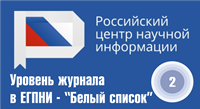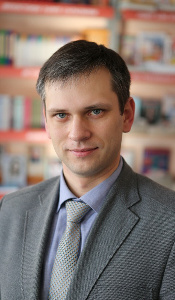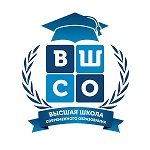СЕМИОЛОГИЧЕСКИЕ СРЕДСТВА НАУЧНО-ПЕДАГОГИЧЕСКОГО ПОЗНАНИЯ
Аннотация
Обоснование. Язык педагогической науки как основное средство выражения научных позиций требует особого внимания, ведь именно он является выразителем научных мыслей и презентатором новых знаний. Очевидно, что язык педагогической науки должен быть максимально точным, избегать многозначности и неопределенности. Поэтому актуальной задачей современной педагогики является совершенствование, развитие и систематизация понятийно-терминологического аппарата.
Цель – рассмотреть семиологические средства, которые используются в научно-педагогическом познании с целью их вычленения, дифференциации и анализа, а также описать разработанный автором инструментарий для описания педагогических концептов.
Материалы и методы. Методологическую основу исследования представляет собой методология педагогической семиологии и когнитивной лингвистики: контент-анализ, системно-структурный анализ, сравнительный анализ, метод интерпретации, которые позволяют глубже понять функционирование языка педагогической науки, сформировать и передать педагогические смыслы, зафиксировать педагогические явления в языке.
Результаты. Основу языка педагогической науки составляют слова и выражения особого рода, особый семиологический инструментарий, включающий термины и понятия. Однако единицей смыслового представления научного рассуждения является концепт. Он представляет собой логическое структурирование научных представлений о педагогическом объекте, поэтому, на наш взгляд, в педагогике рационально использовать термин «концепт» как некое коллективное достояние педагогической деятельности, как смысловое ядро культуры.
Педагогика имеет свой набор ведущих концептов, который необходимо описывать и изучать, в связи с чем актуальным представляется предложить многоэтапный инструментарий такого концептуального анализа. Первый этап представляет рассмотрение педагогического концепта в общем терминологическом поле педагогики. Второй этап это определение границ концепта и их концептуального поля с подчиненными ему и раскрывающими его содержание понятиями. Третий этап – создание классификации, эмпирическая проверка и формирование систематизирующей модели педагогического концепта. С помощью предложенного семиологического инструментария можно претендовать на полное раскрытие содержания педагогического концепта в концептуальной педагогической картине мира.
EDN: LOLQPK
Скачивания
Литература
References
Arutyunova N.D. Language and the human world. Moscow: Shkola «Jazyki russkoj kul'tury» Publ., 1999, 896 p.
Boldyrev N.N. Cognitive semantics. Tambov: TSU Publ., 2014, 236 p.
Bordovskaya N.V., Rean A.A. Pedagogy. St. Petersburg: Piter Publ., 2009, 304 p.
Dobrova V.V. The concept of the “pedagogical event” in educational discourse. Vestnik of Samara State Technical University. Series: Psychological and Pedagogical Sciences, 2022, vol. 19, no. 4, pp. 47-56. https://doi.org/10.17673/vsgtu-pps.2022.4.4.
Gorsky D.P. Issues of the abstract and education. Moscow: Academy of Science of USSR Publ., 1961, 351 p.
Karasik V.I., Slyshkin G.G. Lingvo-cultural concept as a unit of research. Metodologicheskiye problem kognitivnoy lingvistiki [Methodological problems of cognitive linguistics], Voronezh, 2001, 198 p.
Koshkina Y.A Pedagogical terminology as an object of cross disciplinary studies. Vestnik Tomskogo gos. un-ta [Bulletin of Tomsk State University], 2010, no. 339, pp. 155-160.
Short dictionary of the cognitive terms / V.Z. Dem’yankov, E.S. Kubryakova, Y.G. Pankrats, L.G. Luzina. Moscow: Moskovskiy gos un-tet, 1996. 230 p.
Lukatsky M.A. Pedagogy in search of itself: a collection of scientific articles. Moscow: Izd-vo Mask. 2020. 500 p.
Maslova V.A. Introduction to cognitive linguistics. Moscow: Flinta Publ., 2016, 296 p.
Maslova V.A. Lingvoculturology. Introduction. Moscow Yurait Publ., 2024, 208 p.
Mavlanova M. Productive ways in teaching pedagogical terminology. Modern Science and Research, 2024, vol. 3, no. 6. URL: https://inlibrary.uz/index.php/science-research/article/view/34802 (accessed October 05, 2024).
Murphy G.L. The big book of concepts. Cambridge: MA, 2002, 555 p.
Nizomova M.B. Pedagogical terms as an object of linguistic research. EPRА International Journal of Multidisciplinary Research (IJMR), 2022, vol. 8(3), pp. 284-290. https://doi.org/10.36713/epra2013
Petrov V.V. Language and artificial intelligence. Language and Intelligence. Moscow, Progress Publ., 1995, pp. 5-11.
Popova Z.D., Sternin I.A. Essays on cognitive linguistics. Voronezh: Istoki Publ., 2003, 192 p.
Stepanov Y.S. Constants: Dictionary of Russian Culture. Moscow: Yazyki russkoy kultury Publ., 1997, 824 p.
Trotzke A., Ranki T. Introduction to Pedagogical Linguistics. Pedagogical Linguistics, 2020, pp. 1-17.
Veidt V.P. Problems of modern pedagogical terminology. Kaliningradskiy vestnik obrazovaniya [Kaliningrad Education Bulletin], 2020, no. 4(8), pp. 4-14. https:// koirojournal.ru/realises/g2020/23dec2020/kvo401/ (accessed May 01, 2023).
Yakovleva N.O. Conceptual apparatus of modern pedagogical research. Pedagogicheskoe obrazovanie i nauka [Pedagogical education and culture], 2012, no. 12, pp. 94-99.
Список литературы
Арутюнова Н.Д. Язык и мир человека. М.: Школа «Языки русской культуры», 1999. 896 с.
Болдырев Н.Н. Когнитивная семантика. Тамбов: ТГУ, 2014. 236 с.
Бордовская Н.В., Реан A.A. Педагогика. СПб.: Питер, 2009. 304 с.
Dobrova V.V. The concept of the “pedagogical event” in educational discourse // Vestnik of Samara State Technical University. Series: Psychological and Pedagogical Sciences, 2022, vol. 19, no. 4, pp. 47-56. https://doi.org/10.17673/vsgtu-pps.2022.4.4.
Горский Д.П. Вопросы абстракции и образования понятий. М.: Изд-во Академии наук СССР, 1961. 351 с.
Карасик В.И., Слышкин Г.Г. Лингвокультурный концепт как единица исследования // Методологические проблемы когнитивной лингвистики. Воронеж, 2001. 198 p.
Кошкина Е.А. Педагогическая терминология как объект междисциплинарного исследования // Вестник ТГУ. 2010. № 339. С. 155-160.
Краткий словарь когнитивных терминов / В.З. Демьянков, Е.С. Кубрякова, Ю.Г. Панкрац, Л.Г. Лузина. М.: МГУ, 1996. 230 с.
Лукацкий М.А. Педагогика в поисках себя: сборник научных статей. М.: Маска. 2020. 500 с.
Маслова В.А. Введение в когнитивную лингвистику. Москва: ФЛИНТА, 2016. 296 с.
Маслова В.А. Лингвокультурология. Введение. М.: Юрайт, 2024. 208 с.
Mavlanova M. Productive ways in teaching pedagogical terminology // Modern Science and Research, 2014, vol. 3, no. 6. URL: https://inlibrary.uz/index.php/science-research/article/view/34802 (дата обращения: 5 октября 2024).
Murphy G.L. The big book of concepts. Cambridge: MA, 2002, 555 p.
Nizomova M.B. Pedagogical terms as an object of linguistic research // EPRА International Journal of Multidisciplinary Research (IJMR), 2022, vol. 8(3), pp. 284-290. https://doi.org/10.36713/epra2013
Петров В.В. Язык и искусственный интеллект // Язык и интеллект. М.: Прогресс, 1995. С. 5-11.
Попова З.Д., Стернин И.А. Очерки по когнитивной лингвистике. Воронеж: Истоки, 2003. 192 с.
Степанов Ю.С. Константы: Словарь русской культуры. М.: Языки русской культуры, 1997. 824 с.
Trotzke A., Ranki T. Introduction to Pedagogical Linguistics // Pedagogical Linguistics, 2020, рр. 1-17.
Вейдт В.П. Проблемы современной педагогической терминологии // Калининградский вестник образования. 2020. № 4(8). С. 4-14. URL: https:// koirojournal.ru/realises/g2020/23dec2020/kvo401/ (дата обращения: 01.05.2023).
Яковлева Н.О. Понятийный аппарат современного педагогического исследования // Педагогическое образование и наука. 2012. № 12. С. 94-99.
Просмотров аннотации: 120
Copyright (c) 2024 Victoria V. Dobrova

Это произведение доступно по лицензии Creative Commons «Attribution-NonCommercial-NoDerivatives» («Атрибуция — Некоммерческое использование — Без производных произведений») 4.0 Всемирная.






































